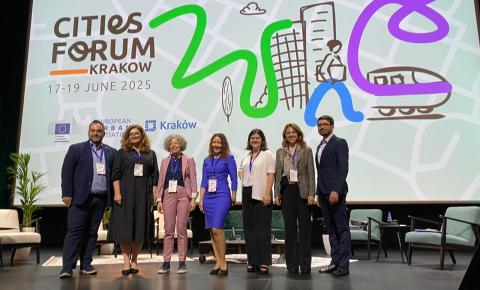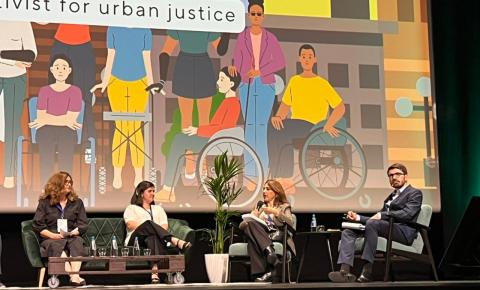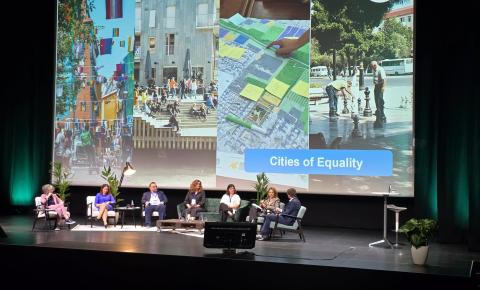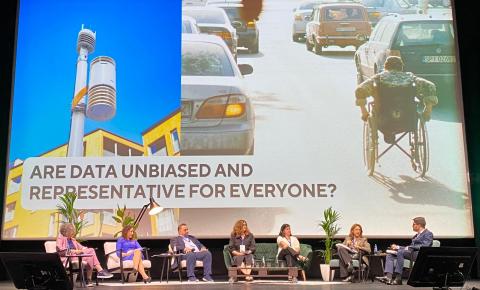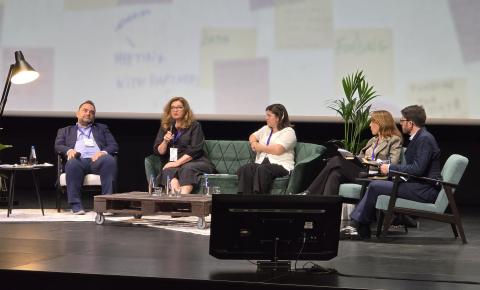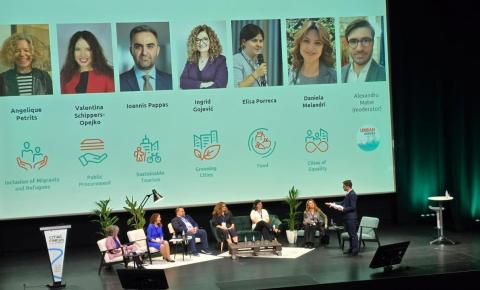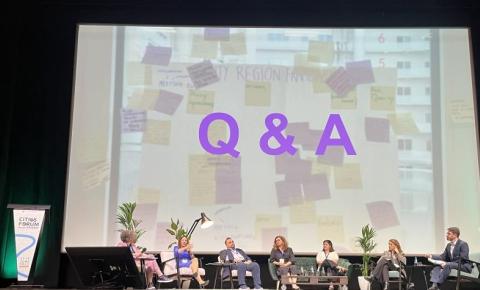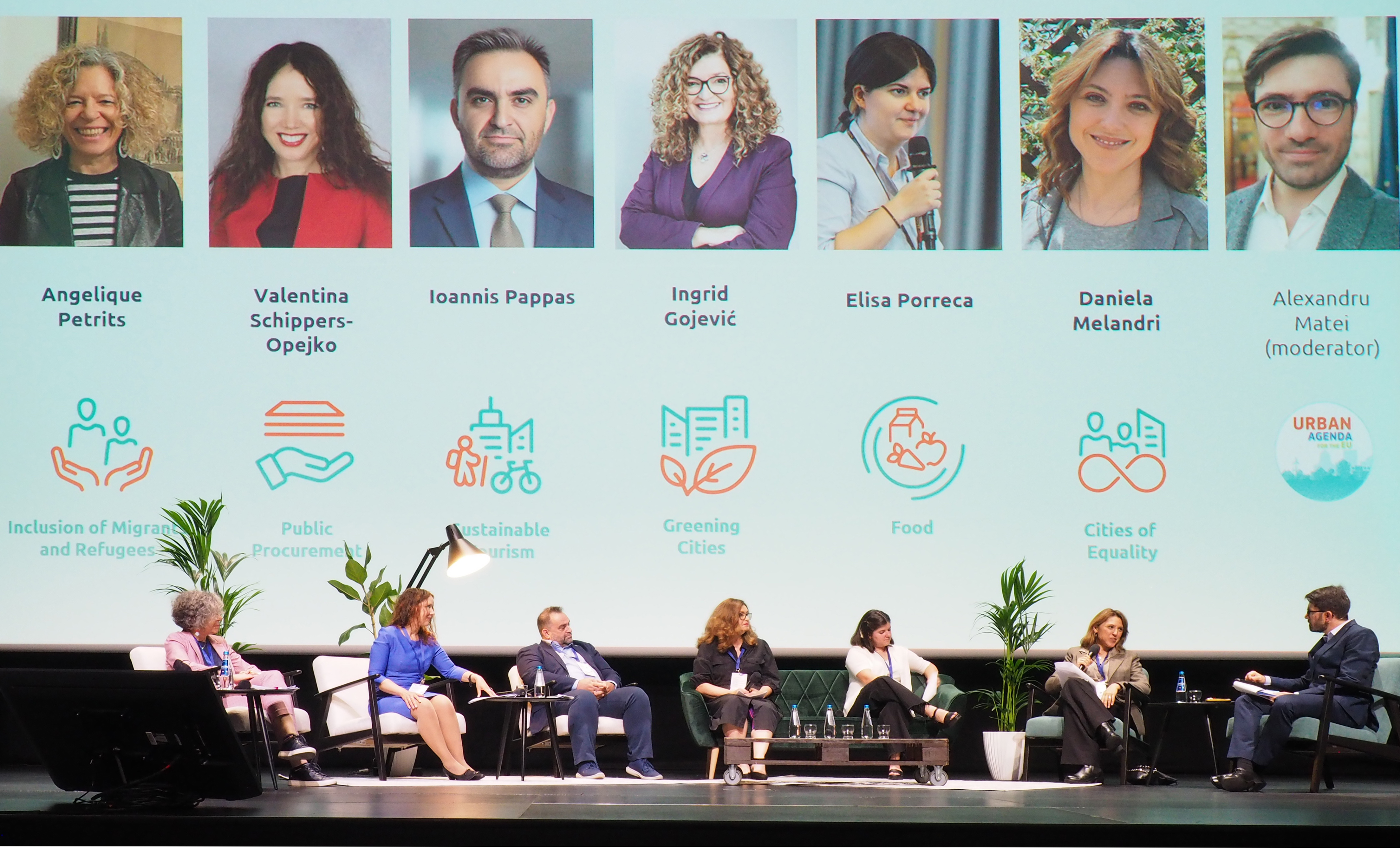
Unlocking urban potential through European Cooperation – The Urban Agenda at Cities Forum 2025
Representatives from six different Thematic Partnerships shared concrete examples of how the Urban Agenda serves as a unique and impactful tool to promote sustainable urban development and enhance the role of cities in EU policymaking, by fostering collaboration across all levels of governance and among diverse stakeholders.
<< Have a look at the EUI news giving an overview of key takeaways from the Cities Forum 2025! >>
<< Discover the Urban Agenda recording (and many more Cities Forum videos) on Portico! >>
What is unique about the Urban Agenda experience?
The session began with an introduction to the Urban Agenda for the EU (UAEU) by Alexandru Matei, from the European Urban Initiative, who highlighted its contribution to strengthening multi-level governance and fostering collaboration across sectors.
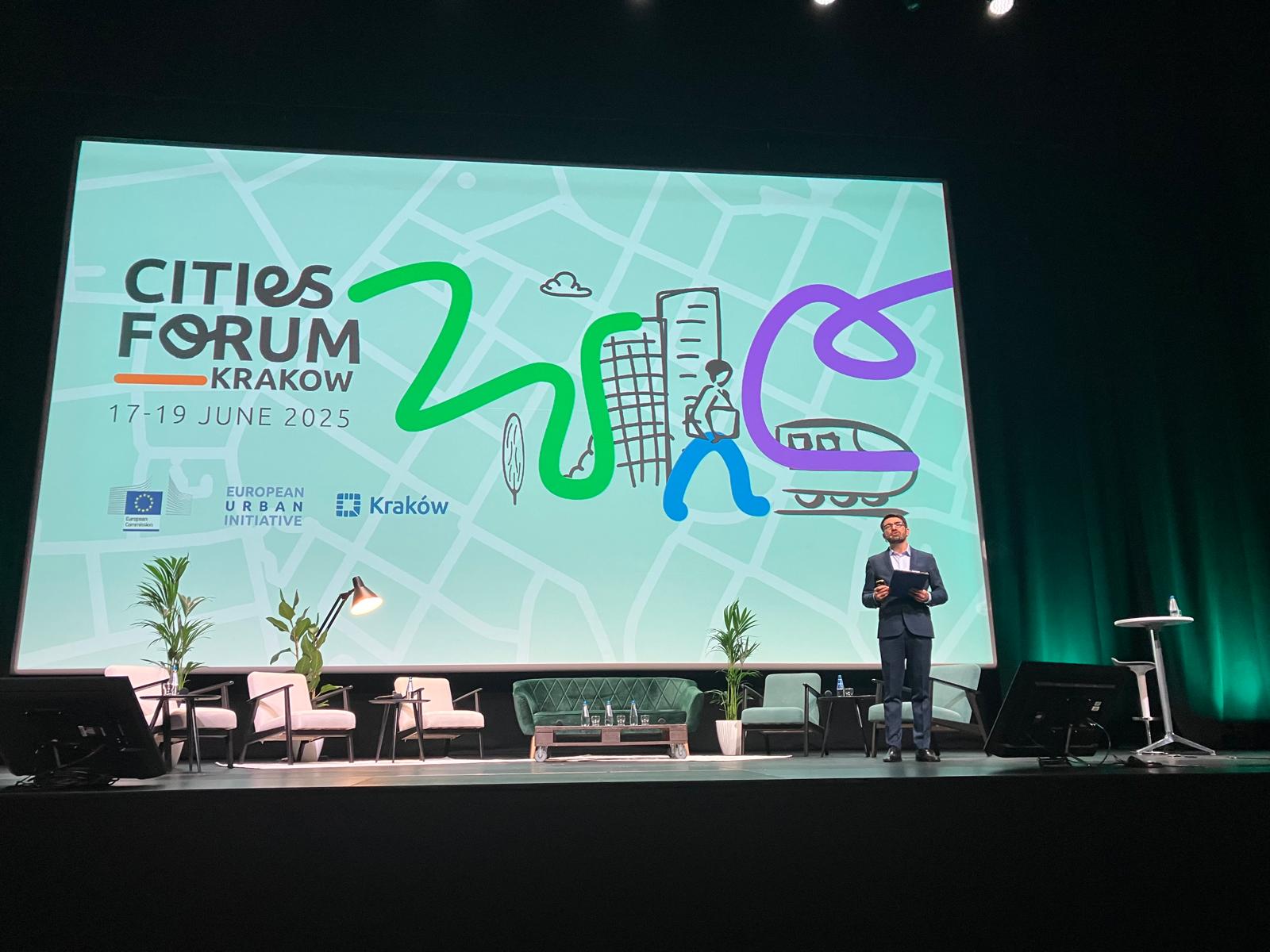
The discussion then turned to the unique added value of the UAEU Partnerships in bringing together stakeholders from different governance levels. A key takeaway was that, unlike other EU programmes that primarily target a single type of organisation, the Urban Agenda promotes a holistic, inclusive approach. It engages a broad spectrum of actors including EU institutions, national and regional authorities, cities of various sizes, and other urban stakeholders—working jointly to ensure more coordinated policy implementation, improve funding frameworks, and encourage the exchange of knowledge on urban matters.
How do Thematic Partnerships contribute to addressing key urban challenges?
Alexandru Matei invited speakers to explain how each Partnership is contributing to addressing key urban challenges. Six Thematic Partnerships—Greening Cities, Cities of Equality, Food, Sustainable Tourism, Public Procurement, and Inclusion of Migrants and Refugees— shared insights that showcased the diversity and complexity of issues tackled within the Urban Agenda framework. Their contributions illustrated how each Partnership is helping to build more resilient, inclusive, and sustainable cities.
Public Procurement: what’s stopping cities from buying green?
Valentina Schippers-Opejko, coordinator of the Public Procurement Partnership (City of Haarlem), addressed this question by introducing the Public Procurement Partnership’s third Action Plan.

The Partnership is addressing risk aversion among public authorities in adopting innovative and sustainable circular procurement by:
- Developing e-learning modules, facilitating knowledge exchange, and highlighting good practices.
- Promoting innovative procurement approaches, such as contracting energy as a service rather than as a commodity, to better align procurement strategies with energy transition objectives.
Food: what role should cities play in food systems?
Elisa Porreca, food policy officer at the City of Milan and co-coordinator of the Food Partnership, highlighted that urban food systems significantly impact citizens’ daily lives and require systemic, cross-sectoral responses. The Food Partnership is stepping up to fill the gap. Public procurement is a powerful lever for driving sustainable food systems and can influence market dynamics. To address the current lack of practical knowledge on implementing local food systems, the Partnership will dedicate a full action to developing a comprehensive training programme for local authorities.
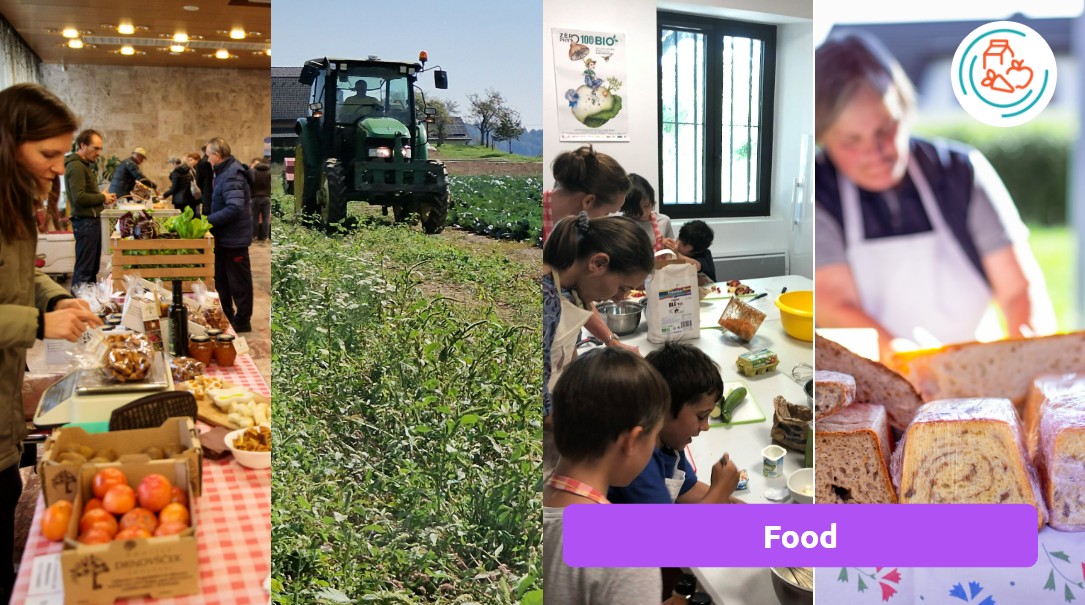
This programme will focus on how to design and implement local food policies, alongside developing policy recommendations based on experiences from cities.
Additionally, the Partnership will establish an Interest Group on Public Land, focusing on its use for food sovereignty, soil health, and sustainable agriculture. This group will foster internal knowledge sharing, advocacy, and capacity-building activities, including webinars to exchange best practices and the creation of policy briefs.
Greening Cities: how can cities turn EU Nature Restoration Regulation into local opportunity?
Ingrid Gojevic, Head of Sustainable Spatial Development at the Croatian Ministry of Physical Planning, and coordinator of the Greening Cities Partnership, highlighted the momentum created by the recent EU Nature Restoration Regulation (NRR).

This regulation requires cities to preserve green spaces and meet ambitious urban greening targets. To support cities, the Partnership is organising a series of webinars that address solutions to help cities implement the regulation. Each webinar focuses on a different dimension of NRR implementation. In addition, the Partnership has developed a position paper to contribute to shaping the next Multiannual Financial Framework (MFF).
Sustainable Tourism: is it possible to make tourism truly sustainable and inclusive for all?
Ioannis Pappas, representative of the Municipality of Heraklion and partner in the Sustainable Tourism Partnership, addressed this challenge by explaining how the Partnership supports cities in striking a better balance. Through their efforts, cities have explored ways to integrate sustainable tourism into broader urban planning strategies.

These include developing eco-itineraries to reduce greenhouse gas emissions, implementing waste and energy monitoring systems in tourist areas, and encouraging SMEs to develop sustainable tourism products. One illustrative example is the CopenPay initiative in Copenhagen, an initiative that allows tourists to ‘earn’ rewards by engaging in sustainable activities.
Inclusion of migrants and refugees: where does integration really happen?
Angelique Petrits, coordinator of the Partnership on Inclusion of Migrants and Refugees (DG HOME, European Commission), argued that while national and regional authorities are responsible for designing integration policies, it is within schools, neighbourhoods and municipalities that migrants truly become part of society.
She highlighted three key points:
- Integration requires a multi-level governance approach, with cities playing a central role.
- Municipalities need more support in navigating EU funding opportunities (e.g. through DG HOME, DG REGIO, and ESF+).
- Cities benefit greatly from mutual learning networks, which help them avoid working in isolation and adopt effective practices from peers.

The Partnership established the European Migrant Advisory Board (2018–2019), contributing to improved policies for migrant integration. This initiative later evolved into a permanent Expert Group on the Views of Migrants, which is regularly consulted by DG HOME. The group provides recommendations and insights on a wide range of relevant topics.
Cities of Equality: how can cities plan without inclusive data?
Daniela Melandri, President and Executive Director of UniverCities and member of the Cities of Equality Partnership, posed this critical question, noting that traditional datasets often exclude vulnerable groups such as refugees, undocumented migrants, homeless populations, limiting cities’ ability to design fair and effective policies. For example, the census, which informs many urban planning decisions, frequently excludes these populations, making it difficult to plan adequate services for them. To address this gap, one of the Partnership’s actions focuses on developing data protocols to support cities in collecting inclusive data.

This will help assess issues such as spatial segregation and access to services. The work involves identifying and analysing existing good practices in cities and turning them into actionable tools that local authorities can use in their daily operations. Another key challenge relates to participatory approaches and co-creation, especially when involving marginalised communities. Barriers such as language differences or competing daily priorities often limit participation. To tackle this, the Partnership will also organise a series of events to share good practices in participatory engagement and co-creation.
These concrete examples demonstrate how local innovation, when paired with EU collaboration, can deliver real solutions to complex urban challenges. They reaffirm the Urban Agenda for the EU as a vital mechanism for embedding urban priorities into EU policymaking and aligning local contexts with broader European objectives.
How the Urban Agenda should be linked with the new policy “EU Agenda for Cities”?
A central question in the debate was how to effectively connect the existing Urban Agenda for the EU with the new "EU Agenda for Cities", a major focus of the Cities Forum 2025, prominently featured in multiple panels and discussions. Participants in the Urban Agenda session especially emphasised the importance of considering the following aspects:
- "Keep what works, add what is needed": Existing frameworks and insights should inform the new agenda, which should align with the core pillars of the UAEU — Better Knowledge, Better Regulation, and Better Funding.
- Empower Cities: Enhance support mechanisms to help cities better understand and access EU funding opportunities.
Now is the time to ensure that the new agenda reflects the diverse needs of cities across Europe, building on proven success and paving the way for inclusive, sustainable urban futures.
Call for a new Thematic Partnership
During the session, the call for a new Urban Agenda Partnership on “Compact Cities – Sustainable Urban Planning and Sprawl Mitigation” was officially announced. The call will be published on 27 August, with an applicant seminar scheduled for 3 September. Further insights on the topic can be found in the ex-ante assessment, which was recently endorsed by the Directors-General on Urban Matters (DGUM), the governance body of the Urban Agenda.
Stay tuned for updates and opportunities to get involved!
